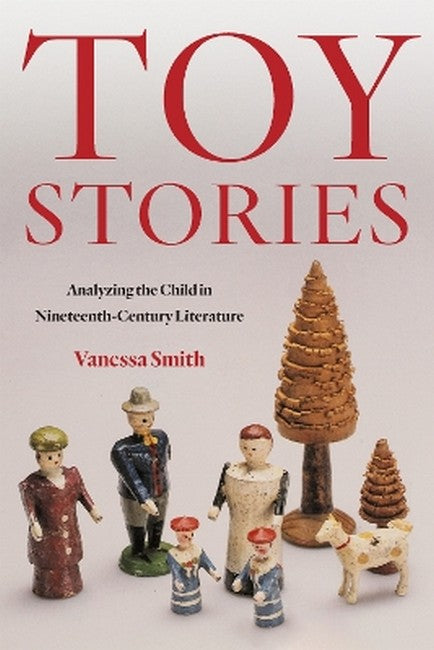Vanessa Smith is Professor of English at the University of Sydney, Australia. Her books include Intimate Strangers: Friendship, Exchange and Pacific Encounters (2010) and Literary Culture and the Pacific: Nineteenth Century Textual Encounters (1998/2005).
Request Academic Copy
Please copy the ISBN for submitting review copy form
Description
Preface: A Toy Is Being Beaten ix Introduction: Child's Play 1 1 Proper Objects 27 2 Possible Persons 54 3 Our Plays 82 4 Bildung Blocks 110 Conclusion: Toy Stories 137 Acknowledgments 147 Notes 149 Works Cited 189 Index 205
It is hard to do justice in a short review to the layers of literary and psychoanalytical analysis that Smith provides.-- "Journal of the History of Childhood and Youth" Smith's attentive focus on the toy as a form of symbolic practice is an important intervention into the critical field of nineteenth-century literature. . . Smith's insistence that psychoanalytic theory can be usefully brought into dialogue with literature preceding the development of Freudian psychoanalysis at the fin de sie?cle is significant.-- "Psychoanalysis and History" Smith's deft linking of therapeutic paradigms with current discussions about realism and the novel demonstrates that psychoanalytic criticism continues to offer interpretative opportunities.-- "Nineteenth-Century Contexts" This in-depth analysis provides some intriguing insights and a new approach to classic literature. . . Highly recommended.-- "Choice Reviews" Smith offers refreshing and thought-provoking analyses of oft-examined texts such as Charles Dickens's The Old Curiosity Shop, Charlotte Bronte's Villette, and George Eliot's The Mill on the Floss. Most compelling is Smith's attention to the many scenes of childish destruction of toys found scattered throughout texts from the nineteenth century, and how these scenes offer 'a countervailing regressive momentum to developmental plots', ' challenging, for example, the forward movement of genres like the Bildungsroman.-- "Nineteenth-Century Literature" Toy Stories is a tremendous contribution both to psychoanalytic literary criticism and to thing theory.---T. J. Lustig, The Review of English Studies An invigorating stereoscopic investigation of Victorian literature and its psychic realities through Anna Freud's and Melanie Klein's competing, complementary understandings of the child. Smith rejects easy gestures of repair, education, and development to offer a reverse genealogy where violent toy stories emerge as twisted object lessons, perverse figures for character, and theatrical scenes of regression. A serious contribution to scholarship on the child, on Klein, and to recent criticism that stays with bad feeling.---Adam Frank, The University of British Columbia Smith's recovery of the toy stories that were hiding in plain sight within nineteenth-century novels is a thrill. One finishes this original and humane study with a new understanding of what character, realism, and narrative were for Dickens, the Brontes, and Eliot, as well as a new understanding of the novel form's relationship to the project of maturation. The object lessons of the bildungsroman were, as we learn here from a wise and generous tutor, shadowed all along by the object relations that are made manifest in childhood scenes of rough and aggressive play.---Deidre Shauna Lynch, Harvard University Vanessa Smith's Toy Stories brilliantly dismantles the myth of childhood innocence, perhaps even dearer to the early twenty-first century than to the Victorians. It offers us a theory of the sadistic child as, startlingly, a portrait of both the nineteenth-century novelist and the modern 'adult.' This audaciously original book will be essential reading for anyone interested in Victorian fiction and in the stories we continue to tell ourselves about what it means to grow up.---Joseph Litvak, Tufts University

